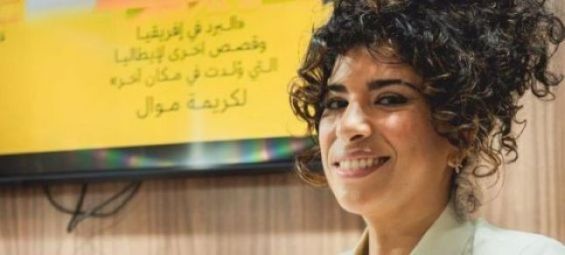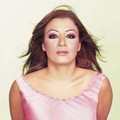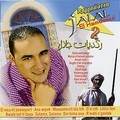A writer's writer, Karima Moual is now a prolific columnist, journalist, and author for Italy's leading national titles. She holds a Ph.D. in Oriental Languages and Civilizations and is a leading figure in Italian political broadcasting. Having cultivated her curiosity from an early age, she learns Italian quickly through social interaction.
Before living in Italy, Karima Moual spent the first nine years of her life in Morocco. «My father was the first to immigrate to Italy, in the late 1970s. My mother joined him just one year after I was born. They worked hard to build a future for their children», she tells Yabiladi. In her native Casablanca, the youngest of three siblings grew up in a family home, surrounded by the benevolence of her grandparents and uncles.
«Although I was far from my parents, I had their love and that of the whole extended family, who were always there, along with my two brothers. From those years in Morocco, I still have fond memories of a very happy childhood, where I flourished, went to school, played, and never felt alone. In fact, it's this period of my life that now defines my relationship with my country of origin, its language, culture, and traditions».

Once her parents had stabilized their professional situation in Italy, the small family was reunited. Karima and her brothers grew up in the town of Santhià, in the province of Vercelli (Piedmont). «Even after leaving Morocco, we never lost touch with the country. My parents always made sure to take us there twice a year. With the advent of satellite dishes, we could watch Moroccan national television as well as Arabic channels, which helped me not to lose the language», the journalist recalls.
Increasingly troubling visibility
In this small town of 10,000 inhabitants in the northwest of the country, the Moual family was the only one with an immigrant background. In the early 1990s, Karima was the only student of Moroccan origin at her school. Despite this environment, which contrasted with her hometown, she easily integrated into an education system that was not yet adapted to foreigners. «It took a lot of effort, but I did it on my own. I also have fond memories of my Italian childhood. I was never a victim of racism», she recalls.
It was in her teens that Karima began to observe the changing perceptions around her. By the late 1990s, Italy's immigrant community was growing. The issue became politicized in national debates. After September 11, the issue of Islam and religious radicalism was added to the mix.
«At 19, I had to choose my university studies, knowing that I wasn't like my peers. I had two sets of cultural baggage, and I was viewed differently as a woman, a Muslim, a Moroccan, and an Arab. I told myself that my dual culture had to be my asset and my added value», she says.
This is how the journalist ended up at La Sapienza University in Rome, where she studied Oriental languages and civilizations.
This choice allowed her to specialize in issues related to the Arab world, the cultures, and politics of the region, while acquiring an academic knowledge of her own heritage.

«After September 11, the rise of racism and Islamophobia was particularly meteoric. But in the face of this, I saw that there were not enough voices to provide scientifically and methodologically grounded counterarguments to confront discourses, ideas, fallacies, figures, and facts. Therefore, I had a strong intuition that my dual background would be the keystone, but that this contribution and potential would have to be strengthened by investing it in knowledge», Karima Moual points out.
From the first two years of her studies, Karima Moual stood out from her peers. «At the university itself, I met a journalist from La Repubblica. She told me that her newspaper, which is the most widely read in Italy, was looking for second-generation immigrants to offer journalistic content whose subjects were well mastered by the authors, with an approach of professional diversity and rigor», she recalls.
«As a student, I found myself writing for a newspaper, although I never imagined a career in that field... I was more interested in academic research or teaching. But that academic background has helped me a lot as a journalist, to the point of becoming a distinctive element in my writing and my contributions».
Confronting the far right in print and on screen
From the columns of one of the founding titles in the history of Italian journalism, Karima Moual moved to television, joining TG1, the news program of the main public channel Rai 1, where she wrote a column on migration issues. She then went on to write for Il Sole 24 Ore, the country's leading business and financial daily. This time she focused on the socio-economic dimensions of migration. With a Ph.D. in Oriental Languages and Civilizations in hand, she broadened her scope and published in-depth articles that made headlines.
At the same time, Karima Moual began her career as an audiovisual reporter. She produced her first documentary on 9/11, giving a voice to Americans of Arab descent. Slowly but surely, she made her way, becoming an editorial writer for La Stampa and La Repubblica, as well as a television columnist and speaker in political debates. In a career spanning 17 years, she has distinguished herself among colleagues of diverse backgrounds, becoming a highly visible figure listened to and followed by all tendencies.

While reaping the rewards of her hard work, competence and personal effort, Karima Moual has begun to enjoy a disturbing visibility in the eyes of the far right. On social media and on television, she receives negative, xenophobic, or racist comments that remind her of her origins or her immigrant background. «These are well-organized movements, to the point where I have received death threats. I know that it's my ideas and my very presence that are a problem for them. I have an answer, and I confront them with solid scientific arguments. That's what really bothers people, but that's my character!»
«I can't allow denigrating, even hateful rhetoric that questions the citizenship of Italians because they come from a dual culture. I freely participate in the political debate as an Italian journalist who has built her life on her work and that of her parents. Why should I have less to say about public affairs than a fellow citizen who was born here, when I grew up here?»
Humanizing migration stories
Beside the attacks, the journalist remains grateful for the support she receives from all sides for her efforts to deconstruct preconceived notions about immigration, in Italy and throughout Europe. She is interested in undermining the untruths conveyed by the theory of the «Great Replacement», which has come to the fore especially in the electoral context. In the run-up to the European elections scheduled for June, Karima Moual reminds us of the wealth that an effective integration policy can bring, with its consequent social, economic, industrial and cultural spin-offs.
«The question of integration is absent from the current debate. There is still no interest in the constitutional principle, nor in the five million migrants legally resident in Italy, who contribute to the balance of the social security fund and pension contributions, in a country that is experiencing a demographic winter and where the economic contribution of foreigners now represents 10% of GDP», stresses the journalist.

To offer an alternative narrative, Karima Moual has published a book that was presented in Morocco at the Salon international de l'édition et du livre (SIEL 2024) in Rabat, as part of the program of the Conseil de la communauté marocaine à l'étranger (CCME). Entitled «Il freddo in Africa e altre storie di un'Italia nata altrove» (The Cold in Africa and Other Stories of an Italy Born Abroad), published by Luiss University Press, the book was born from the author's sense of duty to confront representations of migrants associated with criminality, delinquency and communitarianism.
To this end, she has collected 11 testimonies of Italian citizens from different backgrounds. Each tells the story of a unique journey that embodies a success story.

«I chose to represent fellow citizens with different cultural backgrounds, based on the dual nationalities we have in Italy. We discover people from Chinese, Albanian, Polish families, from African countries including Morocco, from the Middle East... These journeys also illustrate chronological milestones in the history of immigration, from the 1970s to the present day».
The book addresses «the evolution of policies, the view from here and elsewhere...». «Above all, I wanted to highlight the entrepreneurs who contribute to the prestige of Made in Italy and to the economic development of their home countries», explains the writer. For her, «it is a book about courage, sacrifice, perseverance, dreams, audacity and hard work that characterize the men and women who build Italy and remember where they come from».




 chargement...
chargement...












